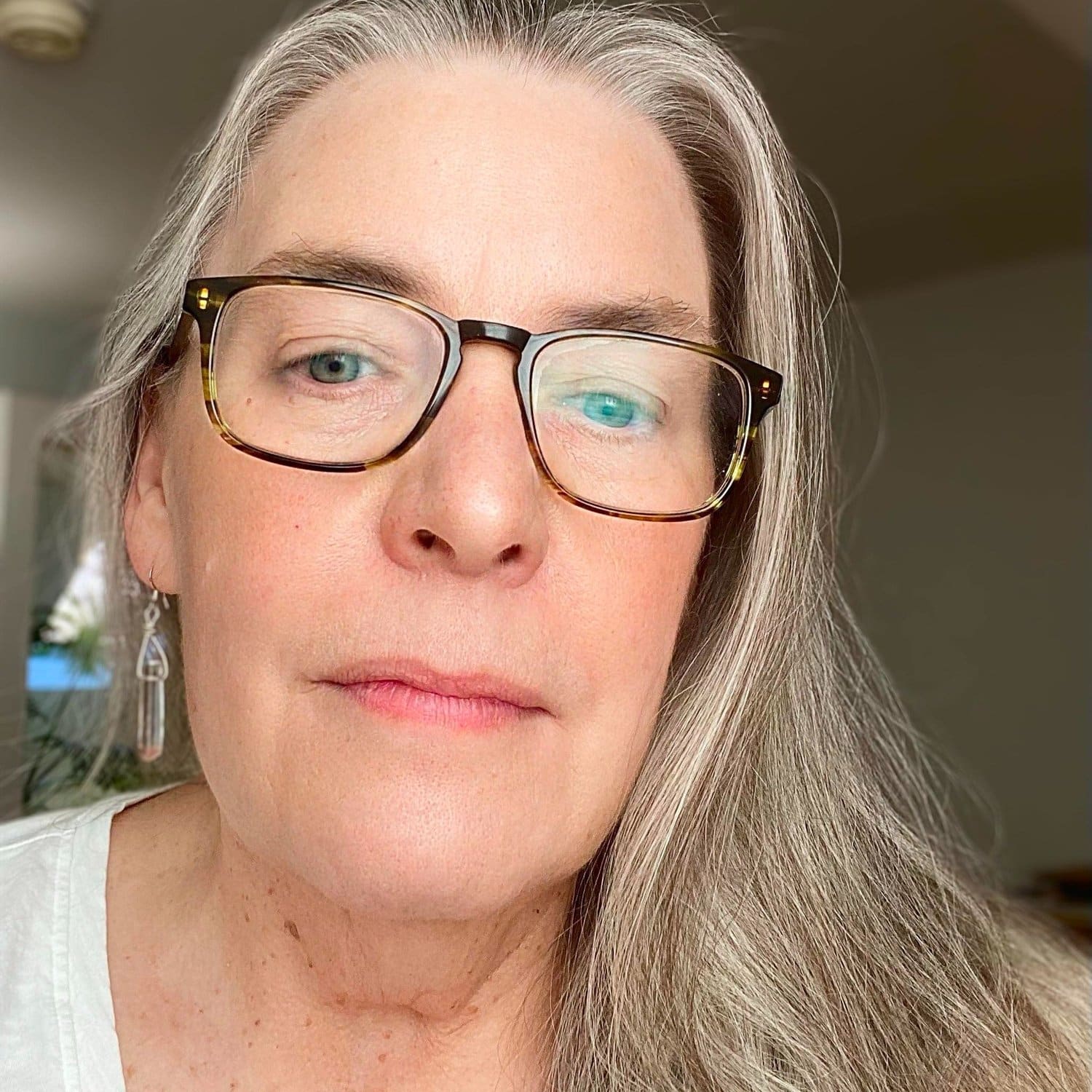Do You Think I Should Go to Law School? Some law school advice to consider.
It has happened to all of us. It is flattering but also a little scary, frankly. Someone you know (or the child, brother, wife, friend of someone you know) announces they are interested in going to law school and asks for your advice. What do you tell them? Do you eagerly encourage them because, well, everyone should be encouraged to get ahead?
Or do you tell the truth and risk offending them?
It happened to me recently when I spontaneously blurted out, “Oh, have him call me. I can give him some perspective on the law as a career and fill him in on what he might expect.” Gulp. Now what? I decided to poll a few friends and colleagues for their thoughts. What I got back was much more than I ever expected. Here’s what this stellar group had to say to my young friend.
Question: What advice would you give to a very bright and already employed 27-year-old man with an engineering degree if he asked for your perspective on his plans to go to law school and become an intellectual property lawyer?
Patrick J. Lamb
I think both the law and law school are fundamentally broken models, so I would be very hesitant about going to law school right now. The changes in the profession over the next three to six years, as predicted by people like Richard Susskind, will be so profound that even if only partially true, the upheaval the profession is likely to experience makes a career investment fairly shaky. Susskind’s book is The End of Lawyers? It’s a very interesting take on how technology and other factors are significantly reinventing the law and what that will mean for lawyers. Anyone who does go to law school absolutely should get an MBA at the same time. The combination will serve him or her much better than a law degree alone.
Patrick J. Lamb graduated cum laude from the University of Michigan School of Law in 1982. He left practice in a large law firm in 2007 to found the Valorem Law Firm in Chicago, the immediate goal of which was to “kill the billable hour.”
Marian Lee
What is he really looking for? What does he love to do? If his only reasons for going to law school are job security and money, those are not good reasons. Yes, it’s possible he could make that choice and come out financially ahead. But I don’t advise anyone to go to law school unless they really want to be a lawyer. The profession is already too full of people who came in for the wrong reasons.
Being a lawyer is a difficult job. There are many easier ways to make money, even very good money. No matter what area of practice you choose, there are challenges you don’t have with any other profession.
But if you love the law and are fascinated by all the ways it impacts real people—if you really like helping people (and their businesses), solving their problems, getting into the trenches with them, and using your brain, creativity and heart to have a huge impact on people’s lives and livelihoods, then there is no more rewarding occupation than practicing law.
Although I no longer practice, I’ve never regretted one day of it. It taught me things about the world I never would have known, took me places I never imagined I would go, and allowed me to meet fascinating people I never would have met.
Marian Lee is Director of Professional Development and Risk Management with Denver-based law firm, Brownstein|Hyatt|Farber|Schreck. Prior to that time she had a litigation practice and coached lawyers in their careers. She earned her J.D. at the University of Denver Sturm College of Law in 1988.
Carol Scott James
At the top of the law firm food chain, yes, you’ll make loads more money than you would in many other professions. You’ll also work insane hours. So, you’ve got to love being a lawyer to live the life. I know lots of lawyers that love being lawyers, including IP lawyers. At my firm, IP was recession-proof these past two years, but that was not true at IP patent boutiques that focused heavily on cutting-edge sectors. Job security? No such thing in the 21st century (unless you’re a tenured professor). Only when lawyers know how to bring in their own clients do they have any job security—a security they build for themselves.
Carol Scott James is Director of Marketing and Business Development for the San Francisco law firm, Jeffer, Mangels, Butler & Mitchell LLP. She has been a business executive within law firms throughout California since 1985 and was the second President of the Legal Marketing Association.
Monica Bay
As the daughter of a United Airlines pilot and stewardess—and someone who went to USF law school at night (that’s San Francisco, not gator-land), I would say, “Go for it!” Even if he stays in his current job, I think a law degree or MBA is the equivalent of a BA when the Baby Boomers were in school. I don’t practice, but it’s certainly helped to have my ticket: It opens doors, establishes credibility and can help him circumnavigate any bureaucracy.
I see no down side, except that a) it’s expensive, but a worthwhile investment with plenty of ROI, and b) for the four years (assuming he goes at night), he’ll think doing laundry is social time.
Biggest risk: He’ll need to be very careful to protect his marriage. Many relationships bite the dust when husbands or wives do law school on top of a full-time job.
Monica Bay is Editor-in-Chief of Law Technology News. She is a graduate of the University of San Francisco Law School.
Ron Friedmann
Law schools have, in my opinion, not clearly disclosed (to be charitable) to prospective students the accurate probability of steady and well-compensated employment upon graduation. The right way to think about the answer is to build a spreadsheet to calculate the present value of future earnings under “current path” and “lawyer path.” Of course, the NPV is only as good as assumptions about future income (level and variability). And don’t forget to put in the cost of tuition and any lost income (if not lost income, assign a value to lost leisure time from doing law school at night or part-time).
As for potential level of income, given the structural changes in BigLaw these days, the chances of a high-paying job in that sector are lower than they once were. And outside of BigLaw, the chances of a high-paying career were never that good.
Beyond the economics, there are other issues. One is whether he will view law school as consumption or just investment. If consumption (meaning fun), that is hard to value. Another issue is philosophical: Should we encourage what sounds like a bright and multi-talented person to pursue law, which in many instances merely redistributes the pie? Or should we encourage him to do something that adds more value to society. Of course, others might take issue with the question, and it may not matter to him.
So, I would say, “Statistically speaking, based on recent market developments and longer standing data about law school placement, your chances of a steady, high-paying job by studying law are probably much lower than you think. You have valuable skills, which if you enjoy using them, you can probably put to use in other careers where the likelihood of achieving your economic goal is as good if not better. Further, while there are a few who do enjoy law school, many do not. So you should also consider the psychic cost (beyond any toll it may take on your family). Further, many lawyers are not happy. So even if you achieve your economic goals, consider whether you will achieve your satisfaction goals. And finally, while this may or may not matter to you, consider that we probably have more than enough lawyers and not enough engineers.”
Ron Friedmann earned his J.D. at the University of New York School of Law. He has more than 20 years of legal and marketing experience, most recently working with AmLaw 100 law firms and Fortune 500 corporations on electronic discovery, knowledge management strategies and strategic marketing. He is currently Sr. Vice President, Marketing with Mumbai-based Integreon Managed Solutions.
Burgess Allison
The first question to ask is whether he likes his current job. And what is it that’s drawing him to the law? Is it the money? From a pay perspective, someone who has already been successful in his first career may be comparing the top of that profession to the top of the legal profession. And to be fair, the top of the legal profession is worlds apart from the world of “employees”—you’re working for yourself and you can be adding zeros to the amount on your 1040. On the other hand, 100 out of 100 hopefuls entering law school today are expecting to reach that level, and yet it’s a much smaller number who actually do.
The temptation for someone who makes it to the “bigs” in one profession is to think that they’ll do the same in another. Intuitively, that seems right—I’m guessing that David Boies is going to do well in whatever he chooses to do. But this is a very different profession from what your friend is currently doing. It rewards a completely different set of skills. Even getting into law school is extremely selective—which means that your competition starts at a very high level. And once you’re working day to day you’ll find that the law is competitive in ways that make other professions pale by comparison. Trust me, any level of “office politics” he’s seen in his current job is child’s play in the legal profession, where hardball negotiations are practiced by trained professionals who do this for a living. Coming from a pilot’s world in which large aluminum tubes filled with humans and luggage follow the laws of physics with Newtonian inevitability, the legal profession is a Bermuda Triangle of illogic and chaos, by comparison.
Is he looking for job security? For a 33-year-old first-year lawyer walking fresh into the job market, the challenges will be significant. Not undoable, though. I know a lot of lawyers, indeed some who switched from engineering-related careers, who came late to the law and have done quite well. But still. (I hope he’ll be coming out of a very good school, or already has a job lined up.)
Does he hate his current job, or is there something about the law that draws him to it? Defending the little guy? Sticking up for the big guy? Being in the middle of Really Big Deals? Maybe he loves to argue. Maybe he’s ultra-competitive and loves to pick a fight, just for the fun of it. But how well does he react when someone else picks a fight with him? Does he take it personally? Some people thrive in this environment. Others don’t.
If his reason for looking at the law is that he seems to have found a real calling, he should still do his due diligence. If his reason is simple wanderlust, then he needs to do a lot more due diligence. But if he responds to the question of why by saying, “I’m stuck forever in this stupid employee relationship and I’m never going to make even a half million a year doing this for the rest of my life, and by the way why did my Aunt Merrilyn ask you to be providing this type of advice anyway?” Then I’d say you’re our man! Confrontational, sure of himself, lookin’ for that one shot to Make it Big.
Sign him up, give him a push and send him on his way to a world of opportunity. He’ll succeed. Or he won’t. But either way, he’ll be following his dream. If he has a passion for the law (as opposed to a passion for Scott Turow books), then you’ve got to support it!
Burgess Allison wrote the “Technology Update” column in Law Practice Management magazine for 18 years. He is a Fellow in the College of Law Practice Management and an active member in the American Bar Association’s Section of Law Practice Management. He earned his J.D. from the University of Michigan, was admitted to the bar in Delaware, but is no longer in practice. He is a Director in an R&D not-for-profit.
Gerry Riskin
I would call a couple of managing partners of large premier IP boutiques and ask them whether they would be excited about hiring a lawyer with the skill and knowledge sets he would possess after law school. If I got an enthusiastic positive response, I’d ask if they would explore taking him on in the summers while he studies law, and maybe even subsidizing his education. If I got a negative response, then I would suggest he go back to the thinking board.
If I were talking to him, I’d try to identify where his passion is. One of my favorites is to ask “. . . your fairy godmother walks in with flowing gown and wand and offers to give you whatever life you want. ‘You can be a brain surgeon without going to school. I will give you the degree,’ she says. What do ask of your fairy godmother?” He’ll ask for time to think. Tell him his fairy godmother has other people to see, that he has 20 seconds to ask for something and not to squander the opportunity.
Most adults are afraid to dream because they over-analyze and talk themselves out of everything they want. If he does not answer, that says volumes. If he does, go deeper and deeper into his choice. For example, if he says he would love to be a CEO of a high-tech company (I made that up) then ask him why? What would being a CEO of a high-tech company be like for him? How would he feel and why? It is in this way that you find his real needs and preferences—and then you can return to his real and practical choices and measure them against what his dream world would give him. (By the way, if he asks for money, say fine, but ask how do you want to earn it?)
Gerry Riskin is an Edge International Partner and consults with law firms worldwide on issues related to business management, strategy and marketing. He practiced law in Canada for 10 years before co-founding The Edge Group. Home base for him is now the British West Indies, and he blogs at Amazing Firms, Amazing Practices.
Paul D. Phillips
There is no question that IP law and litigation is one of the hottest, most intellectually interesting fields in law right now. Thirty years ago, 80 percent of American industry’s value was in plants, machinery and land and 20 percent in IP—now those proportions are reversed. What is Microsoft, really, but a big collection of IP? So, he’s identified an extremely promising area of law and, with an engineering degree, he seems to have the tools to do well in that area.
Going to law school and going through the apprenticeship phase at a law firm to become a partner is a long, hard, grueling road—probably lasting 8-10 years. Much of this will have precious little romance, sex appeal or Perry Mason stuff. There will be lots of late nights, stress and sheer drudgery. Therefore, he shouldn’t do this unless it fulfills much deeper personal goals than “making the big bucks.” The fact that he already has what most would consider a fine job and good income makes the tradeoff even harder. Unless becoming a lawyer engages him on an emotional (not just intellectual and financial) level, fires his passion, and will fulfill long-held dreams, I would counsel great caution in abandoning his current career.
Where does he want to live? How does he like to spend his time off? What are his aspirations for a family, or for other goals or avocations outside of work? Obviously these are highly personal questions, but in my view the answers to these kinds of questions—and squaring one’s individual answers with career goals and demands—have a great deal to do with long-term life happiness, satisfaction, and productivity—certainly more than income.
Paul Phillips has practiced environmental law for more than 20 years with Rocky-Mountain regional law firm Holland & Hart, where he also served as firm Chairman between 2003 and 2007. He is a Fellow in the American College of Environmental Lawyers. He graduated magna cum laude from Harvard in 1973 and received his JD from Yale in 1976.
Harry Trueheart
If he is interested in private practice, he will need to be enthusiastic about the business development side of it. There is also a difference between a patent prosecution practice and a litigation practice in the IP arena. There are those who do both but, on the whole, those who like one do not like the other. Patent prosecution and related advising involves the detailed completion and filing of patent applications and advice on their enforceability. Patent litigators represent their clients when they are involved in a lawsuit involving patent rights – their forte is the stylized combat of litigation. I suggest he get some “month in the life” input from practicing IP attorneys to test it against how he likes to spend his time.
On the job security question he raised, is the law more secure than engineering, the answer is not as clear as it once was in either profession. And on the compensation question he raised, while it may be true that the opportunity for him to make more as lawyer is greater, he should assume that the halcyon days of ever- rising lawyer compensation are fading if not gone.
Harry Trueheart is Chairman of international law firm Nixon Peabody, where his practice focuses on litigation, arbitration and mediation. He earned his BA and JD at Harvard.
Dave Kleinkopf
The biggest mistake all law students make is underestimating the cost of getting their degree and the noose it puts around their neck once they graduate. This is true regardless of age. Most law students these days graduate with so much debt, that it is equivalent to a mortgage on a house (and a very nice one at that!). Not only does this create an incredible financial burden, but because of the financial burden, it causes many law students to end up in a job that they hate, because it is the only job that pays enough to pay off their debt. This leads to my second point.
Nobody should go to law school solely because they think they can substantially increase their income. As many have said, that is true for a small group of lawyers, but for many it is just not the case. I firmly believe that someone should go to law school because it is their passion, or because it has the ability to open a door to their passion. Again, to underscore my first point, law school is so expensive these days, even those law students who went to law school because it was their passion become very disillusioned and unhappy, when, upon graduation, they are unable to pursue their passion because of the financial noose around their neck.
It is also very tough for an “older” law graduate to break into the traditional private practice. Whether legally or morally right, it is unfortunately the case.
A law school education can be extraordinarily valuable, because as “they” say, it teaches you to think differently. That thought process can be applied directly to the law, to business, to politics and so on. So, if you have the financial resources on hand to pay for your education, you have a passion for going to law school other than to earn more money, you do a little ground work to make sure that in the area of your passion prospective employers are willing to look at older students, then give it a go. Otherwise, I would suggest he either stay where he is or find another way to pursue his passion.
There are just too many disillusioned lawyers out there whose expectations far exceeded reality.
Dave Kleinkopf was Managing Partner of Denver law firm, Jacobs Chase, for 15 years. Prior to founding the firm in 1995, he was Chairman of the Real Estate Practice Group of the Denver firm Holme Roberts & Owen. He is currently a principal with Crave Real Estate, a continuation of his career-long involvement with resort acquisition and development. His JD is from the University of Michigan Law School.
Merrilyn Astin Tarlton has been helping lawyers and law firms think differently about the business of practicing law since 1984. She is a Fellow of the College of Law Practice Management, among the first inductees to the Legal Marketing Association Hall of Fame and Adjunct at the University of Denver Sturm College of Law. While she never went to law school, many of her best friends did.
Illustration © Imagezoo.com.























